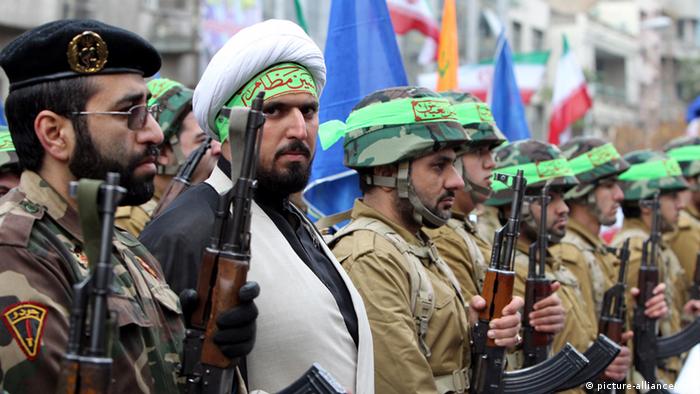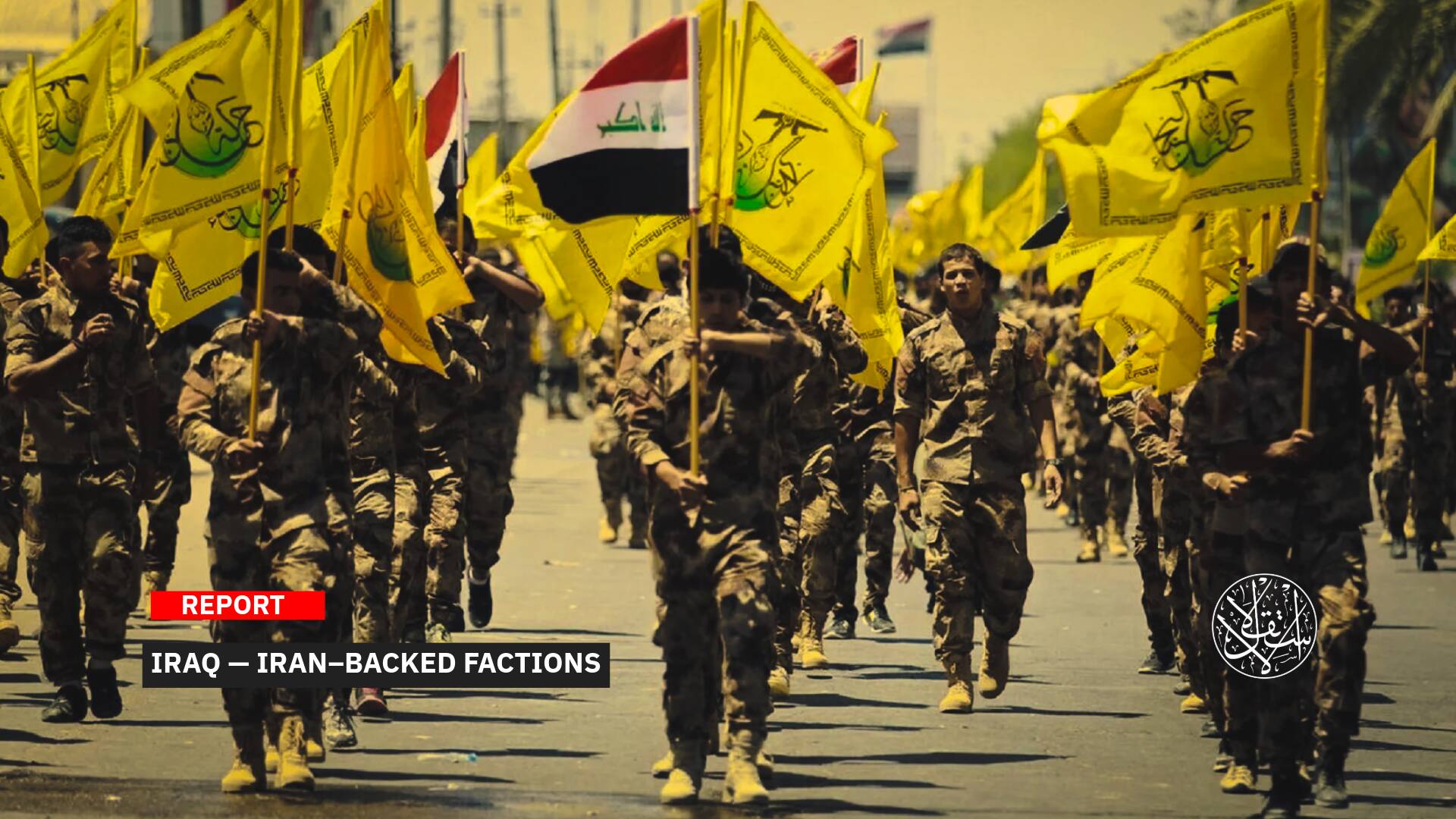Why is Iran opposing Turkiye in launching a New Operation in Syria?

Turkiye is increasingly threatening to launch a new military operation against PKK branches in several areas of northern Syria, completing the "security belt" on its southern border.
The United States is "concerned" about the operation, as it militarily supports the P.K.K. branches in northeastern Syria, but in the middle of that Iran's position is explicitly opposed.
'Security Belt'
On May 29, 2022, Turkish President Recep Tayyip Erdogan renewed his country's intention to complete the "security belt" it is working to establish along its border with Syria "as soon as possible." "We cannot leave the slightest attack on Turkiye from there unanswered," he said.
"There are hotbeds where terrorist organizations are concentrated in areas stretching from north-east to north-western Syria," he said.
Erdogan expressed regret that coalition forces, led by the United States, continued to provide them with weapons, equipment and ammunition.
At a meeting on May 26, 2022, Turkiye's National Security Council stressed that military operations currently under way on the country's southern border and those to be implemented are a necessity for national security and are not aimed at the sovereignty of neighboring countries.
During a telephone conversation with his Russian counterpart Vladimir Putin on May 30, 2022, Erdogan stressed that the creation of a 30-km-deep safe zone on his country's southern border has become an "urgent necessity."

But Iran’s Foreign Ministry has declared its opposition to a possible military operation against PKK branches, located in more than one area along the southern border with Syria.
The Syrian branch of PKA is the YPG, the backbone of the Syrian Democratic Forces (SDF), backed by the U.S.-led international coalition, the armed wing of the Kurdistan Democratic Political Union (KDP).
Ankara, Washington and several European capitals classify PKA as a terrorist organization for targeting Turkiye's interior with armed attacks in recent decades and represents the spiritual father of all Kurdish armed organizations in Syria and Iraq that dream of secession and the establishment of a major Kurdistan state.
"Iran opposes any military action and the use of force on the territory of other countries in order to resolve differences between the two sides and violates their territorial integrity and national sovereignty," ministry spokesman Saeed Khatibzadeh said May 29th.
The Iranian official said a possible military operation by Turkiye would lead to "further complexity and escalation" in Syria.
On May 23, 2022, Erdogan announced his country's readiness to launch a military operation in areas occupied by Kurdish militants on the border, amid reports of an understanding with Russia on the move.
State Department spokesman Ned Price said his country was "very concerned" about the Turkish declaration. "We condemn any escalation and support maintaining the current ceasefire lines."
Iran Papers
Turkish media have focused on areas currently controlled by P KA branches on Syria's border with Turkiye, which is now surrounded by a possible military operation.
The first is The City of Tell Rifat in Aleppo countryside, the most important city in the anticipated operation, as it is the starting point for rocket and artillery attacks against opposition Syrian National Army areas in the cities of Afrin, Azaz and Jarabulus.
According to Turkish media, the scope of the possible operation also includes "Ain al-Arab, Manbij in Aleppo countryside and Ain Issa in Raqqa countryside."
By controlling these areas, the entire area of Ras al-Ain, under the control of the opposition Syrian National Army, even Afrin, will be free of PKK and its branches.
According to a report of the Turkish newspaper Yeni Safak, published on May 26, 2022, the area covered by the military operation, Russia had earlier made pledges to set up checkpoints to prevent attacks from it.
Moscow "failed to meet its obligations, withdrew its soldiers from the region after the Ukrainian war and was replaced by Iranian-backed militias, prompting Turkiye to act and make its decision on the operation," the paper said.
Colonel Ahmed Hamada, a military analyst and strategist, identified to Al-Estiklal, a number of papers that Iran has in Syria and pushes to object to the Turkish operation.
"First, the deployment of Iranian militias on Syrian soil has expanded, with Russia focusing on invading Ukraine, withdrawing some of its forces from military positions and handing them over to those militias," the colonel said.

"Iran's redeployment and subsequent visit to Tehran by (regime president) Bashar al-Assad and the meeting with (Iran's Supreme Leader Ali) Khamenei demonstrate that there are transformations and perhaps all this tension and attraction comes ahead of the 18th round of Astana peace talks in Syria, in Kazakhstan in mid-June 2022," Hamada said.
Astana has a military path, comprising the three guarantor countries (Russia, Turkiye, Iran), opposition and regime delegations, in which some Arab countries participate only in the role of observer, such as Jordan, Egypt, Iraq and Lebanon, and the first rounds of talks began on January 23 and 24, 2017.
"Iranian militias are spreading at the lines of contact with the Syrian opposition in western Aleppo and eastern Idlib, so Tehran may want to send a message to Turkiye that entering the eastern Euphrates may make other opposition fronts a target for the Iranians," Hamada said.
"There is Russian-Iranian pressure on Turkiye that the operation needs more understandings to take place against the Forces of QASD, especially after Ankara's emergence of a balanced place in international relations and Russia’s need, as well as the United States and the West," he said.
Turkiye Shares
The relationship between Turkiye and Iran in Syria is governed by the Astana path, but the situation there is not without a "hidden conflict." Many military observers believe that Russia is the rhythm officer in preventing its crisis.
But despite the absence of a military presence of Iranian militias in areas controlled by PKK branches, they have always been prepared to pounce on them in the event of any possible vacuum.
This began in the eastern Euphrates when talk began of a possible U.S. withdrawal from the QASD areas, such as withdrawing its troops from Afghanistan and moving to an advisory role in Iraq.
These observers assert that Iran's options for pressuring Turkiye to stop its third military operation against the branches of PKK and the fourth in Syria are limited and ineffective, especially in light of a regional and international rapprochement with Ankara and the latter's presence in more than one active international file.
In this part, the writer Ammar Jello, interested in Iranian affairs, told Al-Estiklal about dismantling the entanglements of the situation in a possible military operation.
"Iran currently does not have power papers above Turkiye, except for its harnessing of the PKK militia in its hidden conflict with Ankara," says Jello.

"Since the first Astana accords and with its multiple sessions, Iran has lost its presence in the tripartite understanding with Russia and Turkiye, making the agreements look like Russian-Turkish, and this angers Tehran and indicates a decline in its influence on behalf of Ankara and Moscow," Jello said.
This is in addition to the "Azerbaijan War 2020 and the geopolitical change it has imposed on Turkiye's account on Iran, as well as Turkiye's consensus, coordination and partnership with the Kurdistan Region, including security and energy, which are highly influential topics on the Iranian position," he added.
"Turkiye's political rotation and the return of its relations with the UAE, Saudi Arabia, Israel and even Egypt are interpreted by Iran as targeting its interests or diminishing its role in Syria," he concluded.
Hidden Conflict
"What is remarkable about the hidden conflict between Ankara and Tehran is that for the first time, the Turkish ambassador to Washington [Hasan Murat Mercan] is talking about Iran's destabilizing policy in the region, as well as the diplomatic squabbling by their ambassadors in Baghdad against the backdrop of reducing/expanding their interests at the expense of each other in Iraq," he said.
"The presence of the Russian officer in Syria has contributed to the easing of the conflict between Ankara and Tehran, as part of Russia's efforts to catch all the joints of the solution there," Jello promised.

The first military operations were against ISIS under the name "Euphrates Shield," on August 24, 2016, and were concentrated in Aleppo countryside, and the group was then expelled from the cities of Jarablus, al-Bab, Azaz, and 2,055 square kilometers were liberated.
Turkiye also launched two military operations when it decided to block attempts by YPG forces to link a strip of villages and cities on the Syrian-Turkish border linking the provinces of Hasaka, Raqqa, Aleppo, to prevent a Kurdish entity in northern Syria from establishing its borders.
The first, titled "Olive Branch," was named on January 20, 2018, during which the city of Afrin, north of Aleppo, was taken over and ridded of P.K.K. elements.
The second, on October 9, 2019, was named "Spring of Peace" and concentrated in Hasaka and Raqqa provinces, with YPG forces 30 kilometers from the Turkish border.
The opposition Syrian National Army then extended control of more than 4,000 square kilometers, with the aim of creating a safe zone for the return of Syrian refugees to their country.
Sources
- Erdogan: We will complete the "security belt" in Syria as soon as possible [Arabic]
- Iran opposes possible Turkish operation against terrorism in northern Syria [Arabic]
- Turkish media and "operation" in northern Syria: two priority goals and a matter of time [Arabic]
- Washington warns Ankara against launching any military operation in northern Syria [Arabic]










